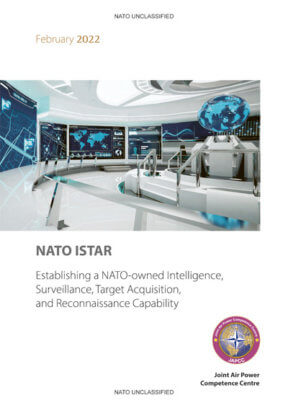Intelligence Surveillance and Reconnaissance (ISR) capabilities of a coalition, such as NATO, have always played a key role in the success of operations. Although often this is considered an invisible job, the data collection and Intel analysis provide decision-makers and actors with a better situational awareness of what is happening in all domains of military operations. This means that allies work together to collect, analyse, and share information for target acquisition with maximum effects.
In recent years, changes in the global security environment have highlighted the need to rethink the strategic concept that underpins NATO. The Alliance is facing an international multipolar framework, in which emerging state and non-state actors are contesting order and security around the world. To respond to these challenges NATO must develop new ‘tools’ beyond the three main lines of effort: collective defence, crisis management, and cooperative security. Launched by Secretary General Stoltenberg, NATO 2030 aims to convey a new strategy for the future of the organization, aided by inputs gathered from across the Alliance.
NATO 2030 is an important starting point to analyse and understand the way forward. The Alliance must go beyond mere dialogue and take measurable action to implement this new strategy. Considering the opportunities that new technologies offer in terms of information sharing, unlimited capacity for data exploitation, and decision-making at all levels, ISTAR is presently the most critical technical and operational challenge for the Alliance. This task compels a new ISR mindset with both persistence and adaptability to anticipate and respond to future developments, no longer content to be static and antiquated. The NATO Intelligence Enterprise (NIE) must undergo significant change, be adaptable to both conflict and conflict prevention, and leverage the experience gained through rapid acquisition to transition to rapidly completing the implementation of new ideas and concepts. Beginning from a SHAPE Request for Support (RfS), the present study aims to identify the elements necessary to complete the current NATO Alliance Ground Surveillance Force (NAGSF) structure, integrate it with three intelligence disciplines (OSINT, COMINT, IMINT) and envision new NATO ISTAR capabilities.
This white paper will not be available on our public website, so I invite you and your staff to contact us to send you the study directly. As always, we welcome thoughtful insights and comments from our readers. Your request for the study, as well as any remarks or observations, may be sent directly to the C4ISR Branch via e-mail at .











